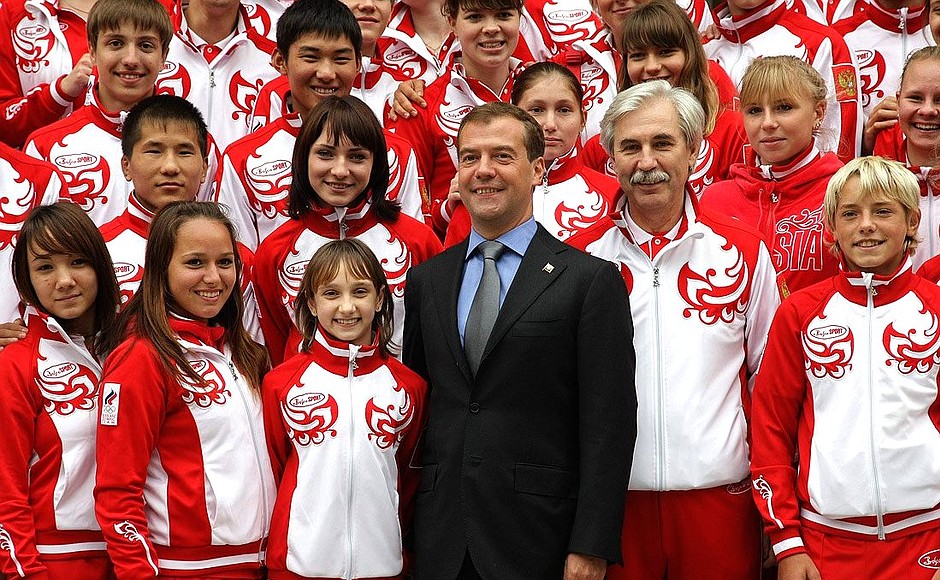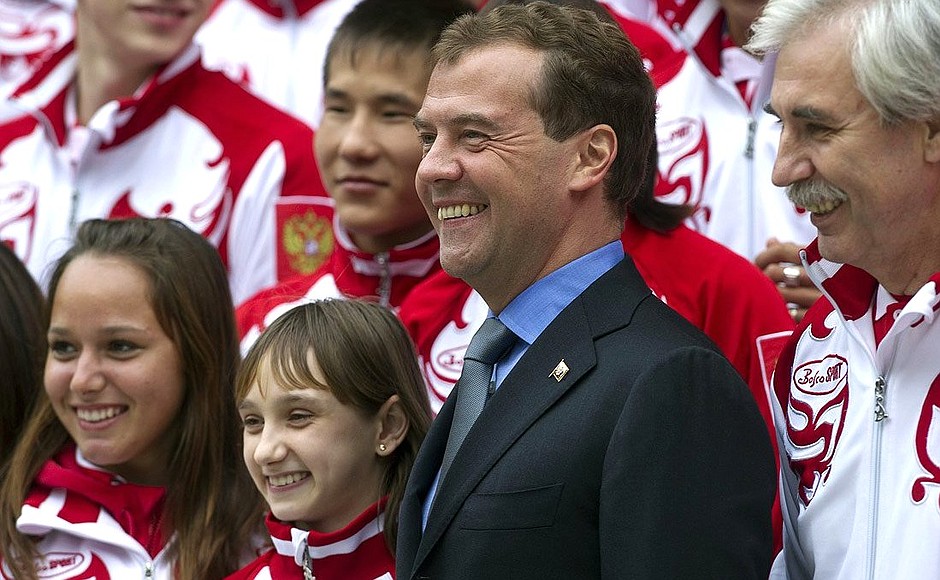The first Youth Olympics took place in Singapore on August 14–26, 2010 and around 3,600 boys and girls from 204 countries aged 14–18 competed in the event.
Russia’s athletes won second place overall in the team medal count, with 49 medals in all — 20 gold, 17 silver, and 12 bronze. President Medvedev congratulated each of the athletes separately and gave each a watch as a present, and also thanked the team’s trainers.
* * *
President of Russia Dmitry Medvedev: I’d like to say that one can immediately tell the difference between young athletes and mature ones: you guys have more energy. That’s fantastic.
You have just arrived. You’ve done great; you have truly demonstrated that sports in our nation have a future.
When we root for our athletes who are competing at the Olympics, world championships, or other major competitions, we always have one thought on our minds, that someone did a great job, won, and was awarded a gold medal. Even if that particular sport is not very familiar (we all are more familiar with some sports and less familiar with others), you can not avoid thinking: what will happen next? After this athlete’s successful career is over, will it become an exception to or a pattern for our nation’s sport history? The fact that you are here today and the fact that you had such a stellar performance at the first Youth Olympic Games shows that this is no exception.
When I heard that our national team was second with only our Chinese friends ahead, I was pleased, because this is a good sign. I do not mean the Chinese are unbeatable. They are certainly many, but first of all, there are not so few of us, either, and second, whatever you take, quality always outmatches quantity. The very fact that you performed so well is excellent: 20 gold, 17 silver, and 12 bronze medals.
What could I wish for you? For all of you here today, you have everything, your whole lives still ahead of you, both your lives in general, and your lives in sports. You are very fortunate, because you experienced the joy of victory at the very beginning of your lives and athletic careers. That is a very important feeling.
No doubt, any victory requires some very serious efforts and you know all this, too, because although you are young, you are already experienced athletes. Nevertheless, when victories start coming at the age of 14, 15, or 18, it’s much better than when it happens, for example, at the age of 30.
I believe that you have had a very good life lesson. I am sure that you will join me in addressing the words of appreciation to your coaches, who truly love you and who have helped you win at these competitions. I hope that you have already thanked them properly. On behalf of the state, I should say that theirs, too, is a truly enormous, selfless effort.
As for myself, when I practiced sports at your age (I was not as serious an athlete as you, hence I was not as successful in sports, which is why I ended up working at my current job), I always thought about my coaches, always wondered why they chose their work.
Back then, in the USSR, it did not allow to earn a lot of money; indeed, the salaries were very modest. Nevertheless, these coaches poured all of their efforts into us, young boys. I came to understand that this is simply a calling, and that these are people who do not want to live otherwise.
They feel that this is their interest, their strength, and their mission. Thus, I truly believe that the work of coaches must receive special appreciation, and not just money-wise (this is a separate subject and a very important one), but through recognition from athletes and the authorities as well.
There is a large variety of competitions that still await you. The Olympic Games in London are just around the bend, and I hope that some of you will participate, while perhaps others will compete in the next Olympics.
In any event, I wish you happiness and I am genuinely proud of your achievements. I sincerely congratulate you on your great success.

